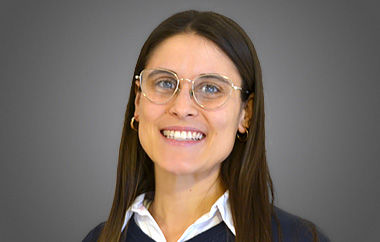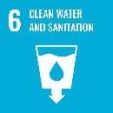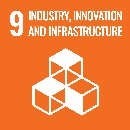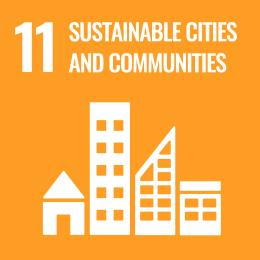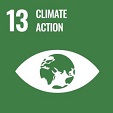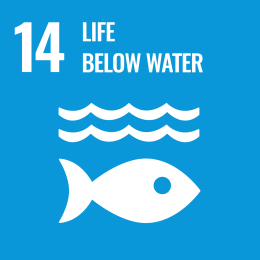PhD Student in Engineering and Material Science at Universidad Tecnológica Nacional – Facultad Regional Córdoba, Argentina
Research focus: innovative wastewater treatment via advanced oxidation processes and design of heterogeneous catalysts to degrade organic pollutants in superficial and industrial water
Wastewater treatment is crucial to healthy communities and a safe environment. Wastewater must be treated to the extent that it does not harm the environment into which it is discharged. Verónica is working on the development of heterogeneous catalysts for the degradation of organic pollutants in surface and industrial wastewater through the application of photocatalysis processes. The main goal she and her colleagues are pursuing is the development of iron ferrites that can be used as photocatalysts for the degradation of pharmaceutical compounds to decontaminate wastewater.
Her current research is closely related to several UN Sustainable Development Goals (SDGs), though the focus of her work is on SDG 6 (Clean Water and Sanitation). But it is also important to consider fossil fuel use and greenhouse gas emissions that result from wastewater treatment. She seeks to protect the environment at all levels by ensuring a sustainable future in water treatment and sanitation, which is linked to SDG 13 (Climate Action), SDG 14 (Life below Water), and SDG 15 (Life on Land).
In addition to her PhD, Verónica is working on the evaluation of technological alternatives for economically efficient solid waste management in the city of Córdoba for her MBA thesis. Solid waste management is a cross-cutting issue that can be directly linked to 12 of the 17 SDGs. Solid waste management addresses the challenges of climate change mitigation and resource efficiency. Her thesis work will help governments to apply new technologies for waste management, cope with the increasing demand for raw materials, generate energy from waste, and contribute to climate change mitigation.
Finally, Verónica works as a chemical engineer at ES Ingeniería, a company that advises and supports other companies and organisations in sustainable projects and process engineering. She is convinced that scientific progress and responsible entrepreneurship go hand in hand and allow us to create a sustainable future for all.
In addition to her doctorate, Verónica is completing an MBA degree and works as a chemical engineer in a company. The jury was impressed by this very committed scientist who aims to combine research and practice and ecological ideas with economic benefits.
The research of Maria mainly contributes to the Sustainable Development Goals 6, 9, 11, 13, 14:
Take a look at this video that briefly introduces Maria and her research:





